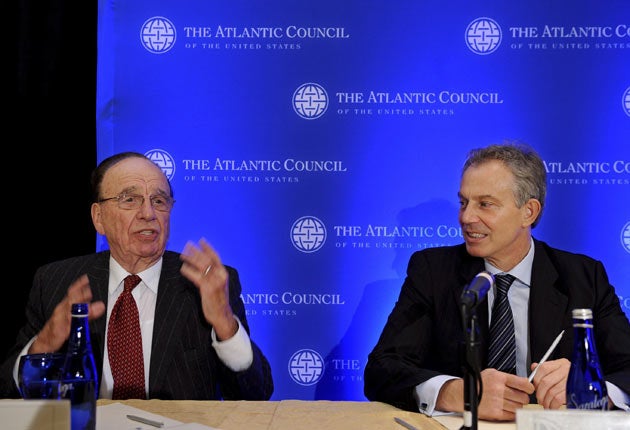Andrew Grice: Freed of their shackles, leaders face a new game

Your support helps us to tell the story
From reproductive rights to climate change to Big Tech, The Independent is on the ground when the story is developing. Whether it's investigating the financials of Elon Musk's pro-Trump PAC or producing our latest documentary, 'The A Word', which shines a light on the American women fighting for reproductive rights, we know how important it is to parse out the facts from the messaging.
At such a critical moment in US history, we need reporters on the ground. Your donation allows us to keep sending journalists to speak to both sides of the story.
The Independent is trusted by Americans across the entire political spectrum. And unlike many other quality news outlets, we choose not to lock Americans out of our reporting and analysis with paywalls. We believe quality journalism should be available to everyone, paid for by those who can afford it.
Your support makes all the difference.First, a confession. I was the matchmaker who arranged the first date between Rupert Murdoch's News International and New Labour. While working for his Sunday Times in the late 1980s, I suggested the paper's executives meet a rising Labour star they had barely heard of.
A dinner was arranged. We were all men in suits. To my horror, a fresh-faced Tony Blair bounced in wearing jeans. I felt my career hanging by a thread. Luckily for me, his hosts were soon eating out of his hands. It was love at first sight, the start of a relationship that culminated in The Sun coming out for Labour at the 1997 general election.
The love affair suited both Labour and the Murdoch empire. Labour avoided the brutal treatment meted out to Neil Kinnock when he was the party's leader, which was firmly programmed into the minds of Mr Blair, Gordon Brown and Peter Mandelson as they forged New Labour. Mr Murdoch avoided the tougher cross-media regulation that Labour once supported.
Ever anxious to follow the Blair playbook, David Cameron courted the Murdoch papers in opposition. He recruited Andy Coulson, who had resigned as News of the World editor over the phone hacking scandal, as his director of communications. He became friends with his Oxfordshire near neighbour Rebekah Brooks, a Murdoch editor who rose to became News International's chief executive.
Despite reservations among some allies, Mr Cameron took Mr Coulson with him to Number 10 last year. It is not a crime to stand by your friends, but that decision now looks a catastrophic one, since Mr Coulson was bound to become a target.
His friendship with Ms Brooks led to another mistake this week. Despite the horrific revelations about the victims of hacking, he initially refused to endorse Ed Miliband's call for her to resign.
Mr Miliband's communications advisers urged him not to declare war on Mr Murdoch by doing so. After the gruesome revelation that the murder victim Milly Dowler's phone was hacked, he overruled them at what his inner circle dubbed the "sod it" meeting on Tuesday. In one bound, Mr Miliband, until recently fearing the Kinnock treatment, was free.
Hacking won't decide the next election but voters' perceptions of the two prime ministerial candidates and the economy probably will.
Mr Miliband senses a chance to define himself against his opponent, and a divide with Mr Cameron trapped on the wrong side of the line. Labour plans to contrast an Opposition leader addressing head-on the challenges facing the country without fear or favour, while the Prime Minister appears full of fear, and favours his friends.
It might just stick. Mr Cameron's allies say he is good in a crisis. He will need to be in this one. It is not over yet.
Join our commenting forum
Join thought-provoking conversations, follow other Independent readers and see their replies
Comments